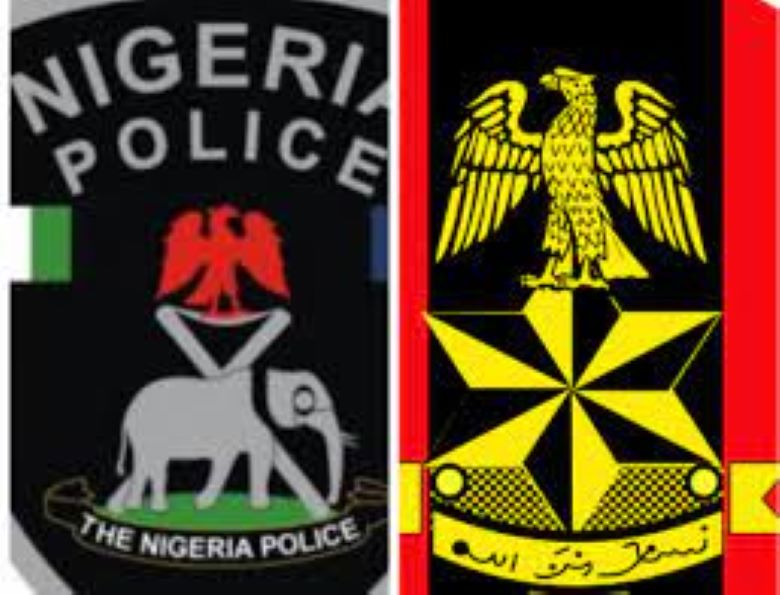National Issues
Adamawa Clash: The Army And Police Must Work Together In Harmony -By Adewole Kehinde
Both the police and the army play crucial roles in maintaining national security. A strong relationship between the two ensures effective collaboration and coordination in addressing security challenges such as terrorism, insurgency, and other forms of criminal activity.

“Coming together is a beginning; keeping together is progress; working together is success.” -Henry Ford
Synergy is the combined power of a group of things when they are working together that is greater than the total power achieved by each working separately.
A society’s most important component is security. The value of a country is correlated with its level of security.
Nigeria has established agencies at every turn to guarantee both internal security and defence against outside attacks.
There is a significant obstacle among these establishments tasked with overseeing the country’s security framework: there appears to be an impenetrable barrier between various law enforcement organizations, hindering their ability to collaborate effectively in the field. One side appears to exude superiority, while the other appears to exude inferiority.
The police and other pertinent security institutions, particularly the army, must work together to combat insurgencies and other emerging security crises on a global scale. However, the ongoing disputes between the police and other security organizations may make it more difficult for them to work together.
The main reasons for the division between the Nigerian Army and Police are their disparate organizational structures, claims of dominance, and mistrust between their respective memberships.
We have seen synergy among the police and the army. An example was when the Plateau State Commissioner of Police paid a visit to the GOC/Commander OPSH, Major General AE Abubakar, with the aim of familiarizing himself with other security agencies and seeking strengthened synergy, which he said was critical to mitigating crime and ensuring stability on the Plateau. Such a visit, he averred, will further encourage and boost intelligence and information sharing among security agencies.
Responding, the GOC/Commander OPSH, Major General AE Abubakar, noted the significance of synergy between security agencies, especially in the fight against criminalities in some volatile areas of the state. He remarked that the mandate of the leadership of the Chief of Defence Staff, Gen. CG Musa, and the Chief of Army Staff, Lt. Gen. TA Lagbaja, clearly emphasizes the significance of jointness and intelligence sharing in the defence of Nigeria. “The need for all security agencies to come together in unison and fight criminality with one voice cannot be overemphasized,” he noted.
While commending the contributions of the police contingent in Operation Safe Haven, Major General Abubakar noted the significance of stakeholder engagement and advocacy at the grass-roots level to end violence and restore stability in the state. He assured the Commissioner of Police of his resolve to strengthen the existing relationship between the military and the police on the Plateau.
On Wednesday, Nigerians woke up to the news that the Adamawa State Police Headquarters in Jimeta, Yola North Local Government Area, was attacked by gunmen, frightening the locals of Yola.
A witness said that three soldiers had an altercation with policemen who were on stop-and-search duty at Target Junction in Jimeta in the Yola North area, and one of the soldiers pulled a jack knife and attempted to disarm the policemen.
This led one of the policemen to shoot the soldier in the leg, leading to the soldiers’ reprisal attack on the police headquarters, during which an inspector, Jacob Daniel, was killed in the crossfire.
One of the policemen who tried to repel the soldiers during the attack said the soldiers deployed a dozen trucks and an armoured tank and opened fire when the police denied them access to the facility.
The Brigade Commander, Brigadier General Gambo Muhammad, had earlier told journalists on the phone that soldiers were at the police headquarters to rescue a soldier who was shot and detained by the police.
Despite all efforts by many stakeholders to propose a long-term solution to the crisis, the ongoing skirmishes between the army and the police remain mysterious.
There appears to be a struggle for subordination and demonization between the army and the police in the nation, as evidenced by the comparison of their relationship to that of a cat and a mouse.
An effective relationship between the Nigerian police and the army is essential for a variety of reasons. Here are a few key needs:
National Security: Both the police and the army play crucial roles in maintaining national security. A strong relationship between the two ensures effective collaboration and coordination in addressing security challenges such as terrorism, insurgency, and other forms of criminal activity.
Law Enforcement: The police and the army have different mandates when it comes to law enforcement. The police are primarily responsible for maintaining law and order within communities, while the army focuses on external threats and defense. However, certain situations may require joint efforts, especially in cases of civil unrest or during times of emergency.
Intelligence Sharing: Efficient sharing of intelligence is vital in combating crime and protecting citizens. A good relationship between the police and the army facilitates the exchange of information that can help prevent and mitigate security threats. This includes sharing data on criminal activities, suspects, and potential threats to national security.
Training and Capacity Building: Collaboration between the police and the army allows for the sharing of expertise, training resources, and best practices. This can enhance the professional development of officers in both organizations, improving their skills in areas such as crowd control, counter-terrorism, and crime prevention.
Public Perception and Trust: A positive relationship between the police and the army contributes to public confidence and trust in the security forces. When these two institutions work together effectively, it creates a sense of safety and stability within communities, fostering a harmonious relationship between citizens and the security apparatus.
Overall, an effective relationship between the Nigerian police and the army is crucial for addressing security challenges, maintaining law and order, and ensuring the well-being of the nation and its citizens.
Adewole Kehinde is the publisher of Swift Reporters and can be reached at 08166240846. E-mail: kennyadewole@gmail.com




















